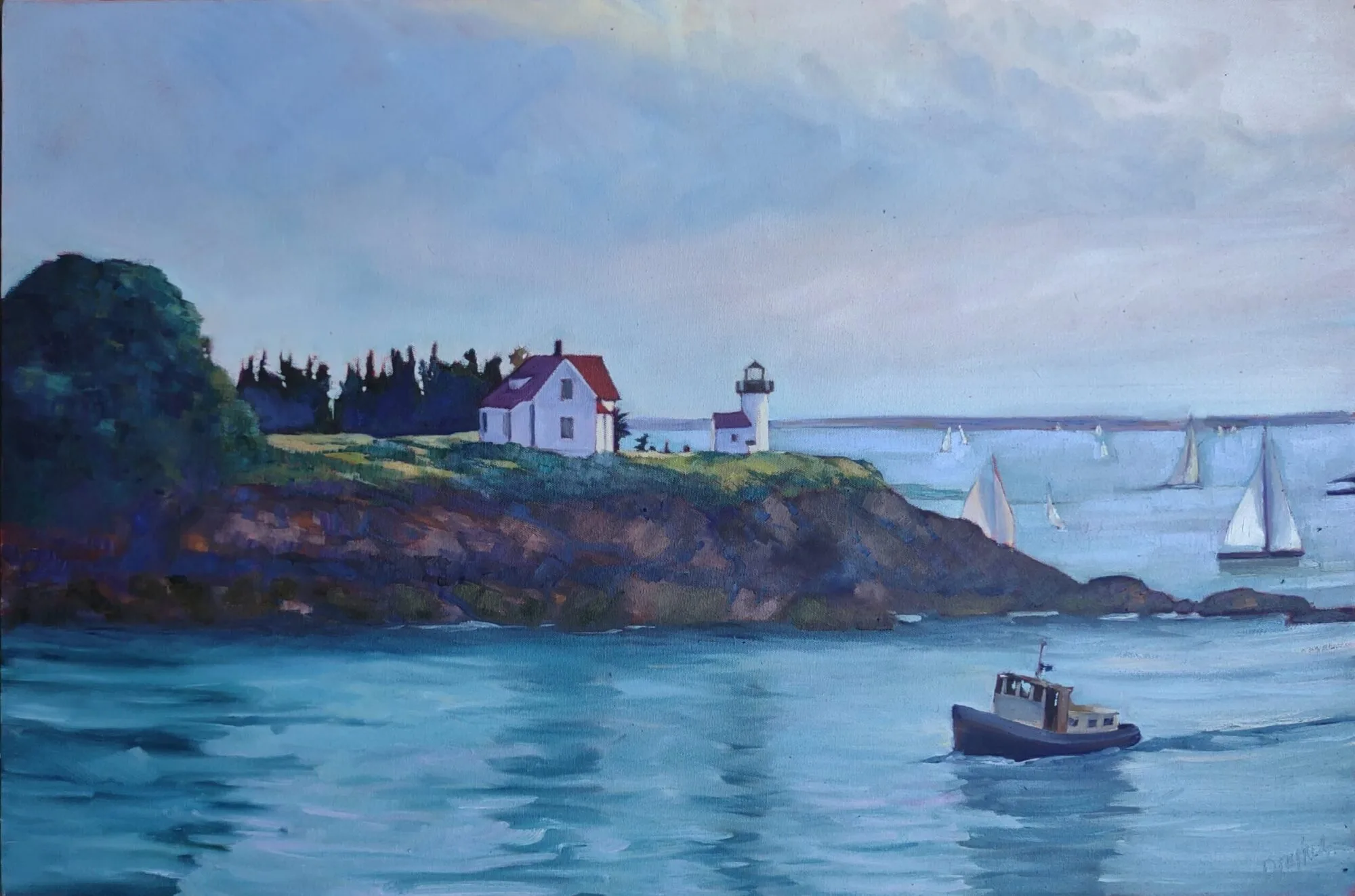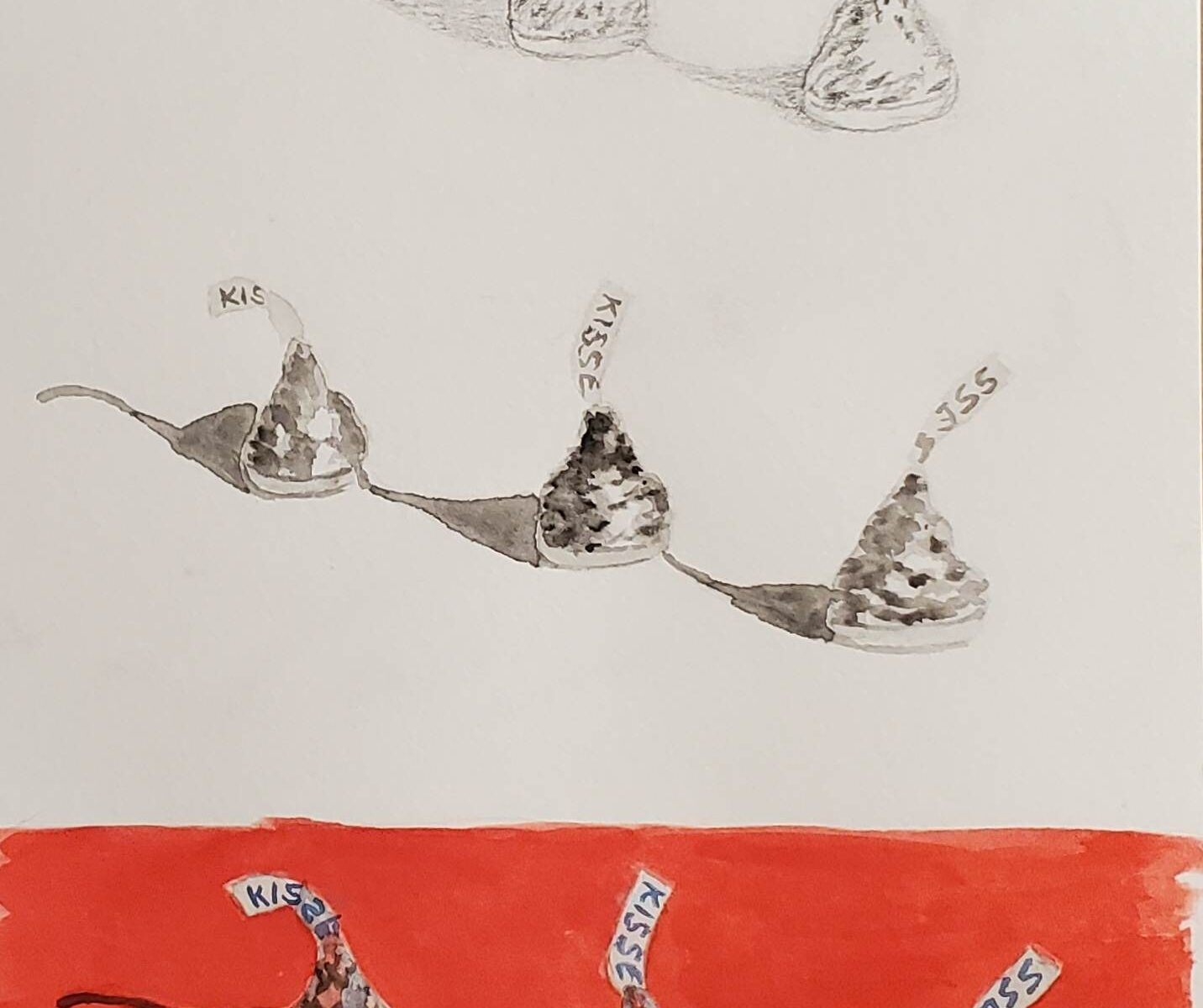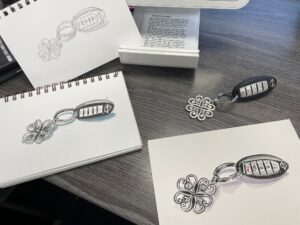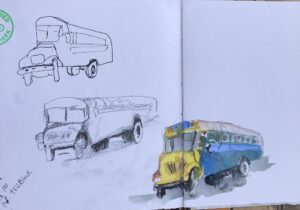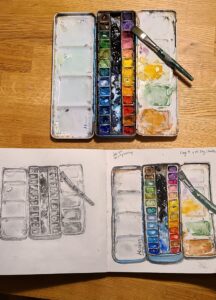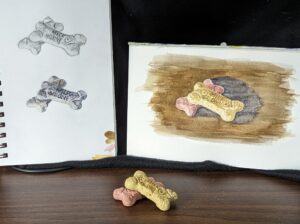
February 21 to April 6, 2024
I like painting-a-day challenges in theory, but in practice I can never finish them. Missed days nag and carp at me. Painting-a-day challenges always end up making art seem like a chore. That’s something art should never be.
Several years ago, my student and friend Becky Bense and I dreamed up a challenge that would motivate us without creating an added layer of guilt. Neither of us have time for the Strada challenge, which requires a new painting or drawing every day for a month. That’s not to knock the painting-a-day discipline; those who finish it in the spirit in which it was intended will reap great benefits in brushwork and composition. However, it’s not always doable.
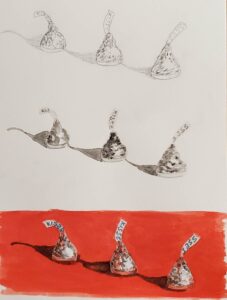
Think of this as the hippie/boho version of a painting-a-day challenge. A big part of the idea was to discourage perseverating. That can be the death of watercolors, which benefit from quickness and a light hand. Instead, we’re encouraging speed: three studies of a few minutes each, in pencil, monochrome and then color. It’s a value-driven exercise that should leave room for spontaneity.
People are very creative in their interpretation of the challenge. Robin Miller once ended up writing a graphic novel. She’s since retired, but it’s hard to see how she can top that.
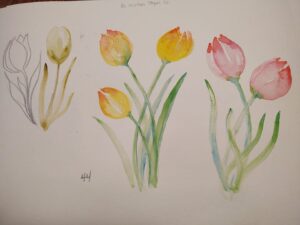
The process is super-simple
We do small watercolor paintings in three steps:
- A sketch;
- A monochrome (grisaille);
- A finished painting.
You can then post your finished work in this Facebook group. (This is a very supportive group, and I also monitor it closely.)
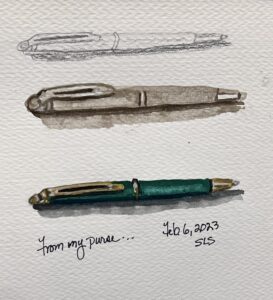
The first rule is, there are no rules
- It doesn’t matter what medium you choose; we chose watercolor because it’s fast.
- If you take more than half an hour on any of these, you’re overthinking it; 15 minutes is better.
- It doesn’t matter how ‘good’ the results are; the process is the important part.
- It doesn’t matter how many you finish; I haven’t yet managed thirty watercolors in 45 days.
- There are no winners; painting is its own reward.
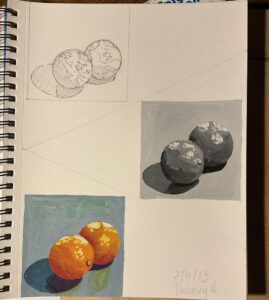
Why three steps?
It’s a sneaky way of teaching a principle-that drawing and value are the basis for fast, confident brushwork. But you don’t need to think too hard about learning; the process is its own teacher. And, no, you don’t have to be my student to play. Heck, you don’t even need to be an experienced painter to play. This is a good, fast way to dip your toe into painting.
If you’ve never painted before, you can start with a simple watercolor kit and a pencil. However, if you think you’d like to pursue painting, I put together the following short list of items that won’t be a waste of money:
- Introductory set of QOR watercolors
- Princeton Neptune Round 8
- Strathmore Watercolor Visual Journal
- A pencil and eraser
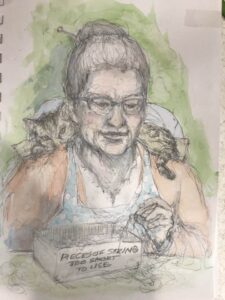
This is kind of a semiannual thing
Although I try to do this twice a year, the dates are as fluid as anything else in this game. (A hat tip to Karen Ames, who reminded me on Monday.) Our dates this time are February 21 to April 6. Of course, I’m always the behindest of artists at my own party, so I’ll be posting what I can finish, when I get it done… and you can too.
If you only finish three paintings in 45 days (which is sometimes where I end up), that’s okay. You’re three ahead of where you would have been if you didn’t do any. If you flex the dates, that’s okay too.
Reserve your spot now for a workshop in 2025:
- Advanced Plein Air Painting, Rockport, ME, July 7-11, 2025.
- Sea and Sky at Acadia National Park, August 3-8, 2025.
- Find Your Authentic Voice in Plein Air, Berkshires, MA, August 11-15, 2025.
- Immersive In-Person Fall Workshop, Rockport, ME, October 6-10, 2025.
